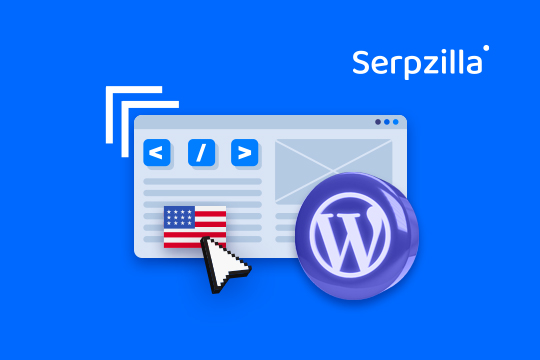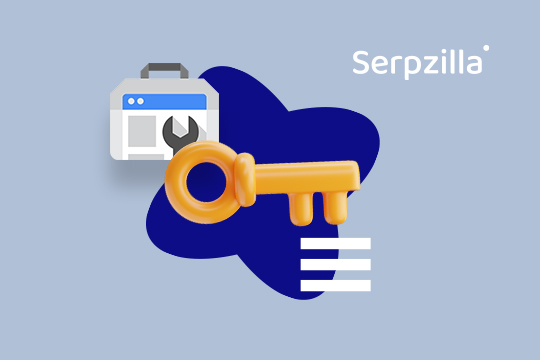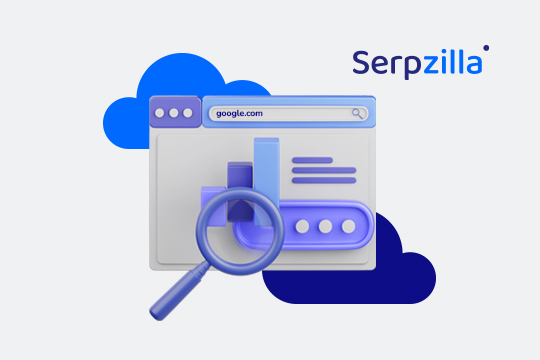If you are a small business and there’s a lot of offline interactions with customers in your business operations, your main SEO focus should be on local SEO. In fact, this is true not just for small businesses, but for any company that operates on a local scale, be it retail chains, any services exclusive to a geographical area, HoReCa businesses and others. Local SEO drives your local recognition and authority, helps your business become more visible in search queries that are locally placed and ultimately helps you to attract clientele and get your revenues rolling in.
In this article, we will look at tips, best practices and tools that can make your locally oriented SEO campaigns really impactful.
Understanding Local SEO: Why and When Do You Need It?
First things first, you need local SEO when you want to advance in your local market and make your online presence very obvious to local audiences. Local SEO shares a lot of common approaches with global SEO. In most cases, the SEO rules are universal, but local SEO will have nuances that will differ from one region to another. For example, understanding of good website UX design and usability can be very different in Japanese and, say, Scandinavian markets. Look at the picture below, for example. These are the Japanese and British versions of Rakuten website.
Japanese:

British:

Quite different, right? The differences in mentality, browsing habits, even sense of beauty all affect how locals view and perceive your content, whether they will be willing to buy your products and services or not. When you tailor your SEO for local specifics with a high degree of understanding your local target audience, you get a competitive edge that those that don’t engage in local SEO never have. You demonstrate the deep understanding of the local culture, peculiarities and reality, and thus establish an immediate rapport with potential customers.
Of course, aside from careful adaptation of your website content to the local audiences, you need specific tools that allow you to conduct SEO campaigns and analyze their outcomes with local specifics in mind. Let’s take a closer look at those.
Prominent Features for Local SEO That your SEO Tools Need to Have
- Rank Tracking
Rank tracking is a feature that is extremely useful for keyword analysis. With its help, you can monitor keyword rankings for particular regions. This allows you to see where you need to make changes and improvements and understand what’s trending locally. Tailoring your keywords for local audiences can seriously save SEO budgets.
- Backlink Selection
Link building when done locally, can be a powerful tool to improve your search rankings SERP results, especially for local queries. Tools that you work with for SEO optimization need to allow you to create locally aimed link building prospect pools.
- Google My Business Optimization
Creating a solid Google My business profile is practically a cornerstone of local SEO. This feature allows you to make sure that the information about you and your business that users see online is accurate and up-to-date. It especially is important for your address, locations and contact information so that locals can reach out to you easily.
- Reputation Management
Word of mouth remains the most powerful advertisement means up to date. Even taken online, it still greatly affects local SEO. The reputation you build with the locals is a huge factor in how well your business and SEO is performing. Your SEO tools need to offer means to work with reviews, especially local ones: monitoring, analysis, discovery of new review venues.
- Social Media
Your online presence and social media activity adds a lot to your SEO effort. It drives traffic, including organic local traffic and creates opportunities for engaging with local communities. Your SEO tools need to integrate with social media smoothly in order to monitor social engagement and signals and run local-based campaigns.

10 Best Local SEO Tools
1. Serpzilla
Serpzilla, and that’s us, is great for overall SEO and for local SEO. Here are some key features you can use:
- detailed local rank tracking and competitive analysis
- create local pools of link building prospects
- search and create collections of guest blogs for local SEO
- run and monitor local outreach campaigns
All this – free of charge. You only pay for the actual link placement.

2. Google My Business Profile
A free tool by Google, it allows businesses to manage their online presence across Google’s ecosystem. It provides access to a variety of Google services, including Search and Maps. Filling out your business profile, for example, will give Google Maps visitors an ability to find you and quickly compare you with other local businesses. Put such information as business hours, website, contact, photos and social media to make your listing more attractive. You can also use Maps for promotion, making your place stand out when users zoom out the Maps. This way, your place is the first they see when they scrutinize the map of the local area.
3. Sape
Known for its robust link-building capabilities, Sape helps businesses in acquiring quality local backlinks that are crucial for improving local search rankings. You can also check your local competitors’ backlink profiles and do extensive local search for prospects.
4. Localo
Localo specializes in comprehensive local SEO management, from listing accuracy to optimizing SEO strategies specifically tailored for local markets. Using this tool, you can manage various local listings across other platforms. So, if you don’t want to use a plethora of tools for local listings, Localo is a good choice to have one-point access to many of them.
5. Ahrefs
While Ahrefs is generally considered a professional all-around SEO toolkit, its features for tracking local keywords and analyzing backlink profiles make it pretty useful for local SEO strategies. There is a downside, however, as its price is on the expensive end, so if you are a one-man team doing your local SEO and managing your business, this choice may not be the optimal variant for you.
6. SE Ranking
SE Ranking offers a suite of local SEO tools aside from tools for global SEO. You can use it for local keyword rank tracking, competitor analysis and more. It also has a pretty powerful reporting tool tailored for local businesses. It integrates well with various social media, so you can manage your SMM campaigns from there. Although SE Ranking is not widely recognized for its work with local listings management, you can still use it to make sure you’re all set up with the local directories and other listings.
7. Semrush
Semrush is renowned for its extensive SEO capabilities, with specific features for local SEO such as local keyword research and on-page SEO recommendations. While it is probably one of the best SEO tools on the market, it is a huge, multifaceted system, more suitable for a team of professional SEO marketers working on huge projects (and budgets). Its price is also rather steep, so if you are a small business operating locally, you may want to look into more budget-friendly variants.
8. Yext
Yext focuses on managing local listings across multiple directories. It is a great tool if you want to make sure that the information about your business and locales is correct, up-to-date and consistent in all local directories. With this tool, listing management is pretty simple. It also allows you to create comprehensive performance reports, carry out monitoring and analysis. Its unique tool is Knowledge Graph, which is a database of various facts about your business found online which you can use as a centralized source of truth.
9. Moz
Moz Local provides tools specifically designed for local listing management, monitoring, and optimizing local search presence effectively. You can use Moz for very solid location data management. It is also great for centralized work with reviews, a specific feature not many other SEO tools have. Moz is famous for its Domain Authority analysis and metrics, so you can use it to do extensive site crawl and audits to check for broken links, performance and backlink profile analysis.
10. Majestic
Majestic offers powerful backlink analysis tools that are useful for enhancing local SEO efforts through targeted link building strategies. While it’s not a local SEO tol per se and is not marketed as such, if you can afford using it, you will find it very much useful for local SEO. Majestic’s metrics, Trust Flow (TF) and Citation Flow (CF), are valuable for assessing the quality and quantity of links. For local SEO, focusing on increasing Trust Flow through high-quality local links can boost your local search rankings. Aside from that, it offers all the staple local SEO features such as local backlink monitoring and analysis, keyword analysis and campaign management.
Conclusion:
For businesses that want to prosper in their local markets, understanding and using local SEO is extremely important. Knowing the right tools, features and activities for local SEO can help you create a perfect local SEO campaign, regardless of whether you are a one-man team or a bigger scale business. The tools listed above cater to a variety of aspects of local SEO, and you can create your own perfect toolkit, depending you your SEO goals and budget.









